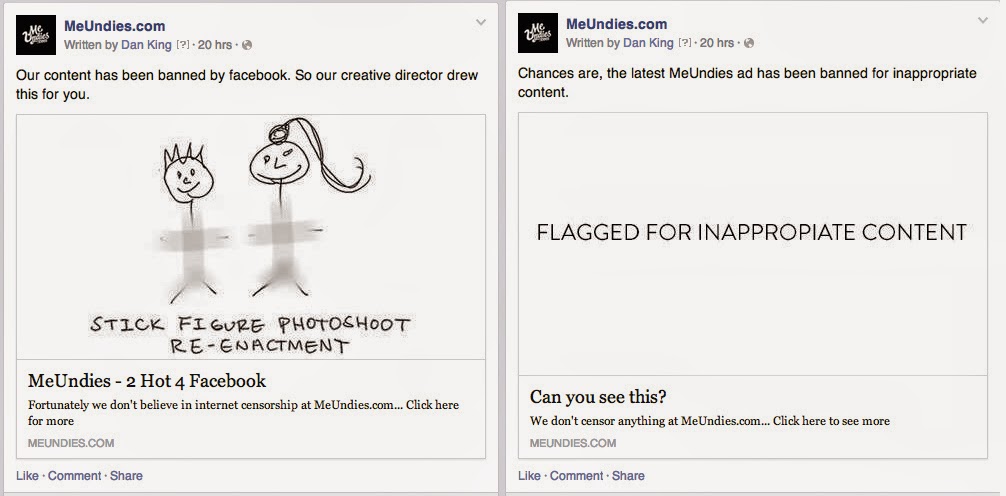The merger that wasn't, the ads that Facebook doesn't want you to see, the importance of video and the rise of podcasting, from hashtag to shopping cart, hooking up or linking in, Tumblr needs traction with Madison Ave., the FTC cracks down on Snapchat, the NLRB may have something to say about your social media policy, Kevin Spacey on storytelling and more, it's This Week in Digital.
A roundup of relevant links affecting our industry.
Each week, I compose a newsletter that includes a series of links about current events and trends in the worlds of technology, social media, mobile, digital communications and marketing in order to keep leaders up to date on changes, newsworthy items and content that might be useful in their jobs.
If you have additional links, sources or ideas that might be helpful, I'd encourage you to add some via a comment below. And if you’re on Flipboard, you can get these links by subscribing to the This Week in Digital Magazine.
Industry
- The Omincom / Publicis merger fell through amid complexities. (AdAge)
- Audio and video content are becoming a more significant part of publishers' evolving strategies.
- Slate will start two new daily podcasts next week - one financial in nature, the other centered on news and commentary.
- Both the Wall Street Journal and Time, Inc. will build standalone video portals. (NY Times and Capital New York)
- Stitcher has created a Listen Later playlist feature with its "Instapaper for audio" function. (Fast Company)
- Chinese e-commerce giant Alibaba filed for an IPO in the US. Some are positing that it may be the largest IPO ever seen. (The Guardian)
- Amazon launched Amazon Cart, which will allow customers to reply to a tweet containing an Amazon product and use the #AmazonCart hashtag to automatically place that item in their shopping cart. (Amazon)
Platforms
- Last week, Twitter was supposedly dying. This week it's not. Its MoPub acquisition last year is poised to make mobile ads much more lucrative and the company is finding new ways to capitalize on its vast audience. (Slate)
- Another look at the numbers puts it in perspective: 16% of the market is not too shabby. (Convince and Convert)
- A new feature in Google Now will alert you if you're near a product you've researched online. (Mashable)
- LinkedIn's challenge ahead in China: not censorship, but culture. The Chinese are not given to as much sharing and transparency as Western business culture. (Tech in Asia)
- Did you know that now you can do more than just link in? LinkedUp! is an app akin to Tinder that allows you to check the professional credibility of your date by syncing with LinkedIn. (WSJ At Work)
- Weibo's CEO has a Twitter-like vision for his company. Hopefully without Chinese censorship. (The Next Web)
- Tumblr is having difficulty convincing advertisers of the benefit of its platform. (Digiday)
- Delicious has been sold again, this time to Science, Inc., which plans to use it as an anchor to a portfolio of mobile content companies.
- Ads for underwear manufacturer MeUndies have fallen under intense scrutiny by Facebook because of their risqué content. Their creative director is having the last laugh, though. (All Facebook)
Measurement/Metrics/Big Data
- From the guy who literally wrote the book on Social Media ROI, here's a chance to reboot your social media program, from likes to ROI. (Olivier Blanchard)
- Never a shrinking violet, the Association of National Advertisers (ANA) is pushing for governing authority to improve media measurement. The justification: "we're spending the money." (AdAge)
- Optimizely uses data to help test versions of websites, moving away from HIPPO-based (highest paid person's opinion) decision making. (re/code)
Legal/HR
- The FTC ruled that Snapchat violated its own privacy policies and as a result must submit to monitoring for 20 years. The messaging platform will not have to pay any fines. (NBC News)
- Google, Facebook, Twitter and AOL are teaming up to help protect consumers from deceptive advertising online with TrustInAds.org. (re/code)
- The NLRB has struck down some provisions of employee communications policies - particularly those requiring disclosure of affiliation with their employer. Related: here are four core elements of your social media policy that may be illegal. (Mondaq and Holtz Communications)
- Want to know how much information you're giving away on Facebook? A new app called Digital Shadow will tell you. It was launched as a promotion to the upcoming video game Watch Dogs. (Search Engine Journal)
Content
- Kevin Spacey continues to dazzle everyone with his keen understanding of storytelling and disruption. (Millennial CEO)
- Scribewise thinks that brands have an opportunity to succeed with explanatory journalism. (Contently)
- Here's how one publisher got 300% more people to read their content. (Buffer)
- Real-time marketing is overrated. A better approach? Content strategy. (Logic + Emotion)
Essential Reading/Watching/Listening
- This week at a lecture at Harvard, Andrew Sullivan tore up the earned media world with a controversial talk: "How Advertising Defeated Journalism," in which he opined that because journalists haven't figured out how to drive subscriptions to their content, sites that rely on advertising are more successful. He also has some choice words for native advertising, sponsored content and branded content, calling it "naughty." (Digiday)
- David Armano takes another angle, arguing that the average person doesn't discern between paid and earned media. To them, it's about content, and it's the responsibility of journalists (and brands) to burnish their reputation. (Logic + Emotion)
- For a look at how we got where we are, a look at two decades of warning from a former P&G CEO reflects on how tech took a bite out of the advertising industry. (AdAge)
Image credit: Thomas Hawk (Flickr)
--


